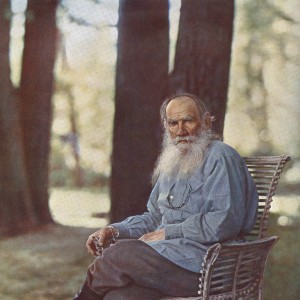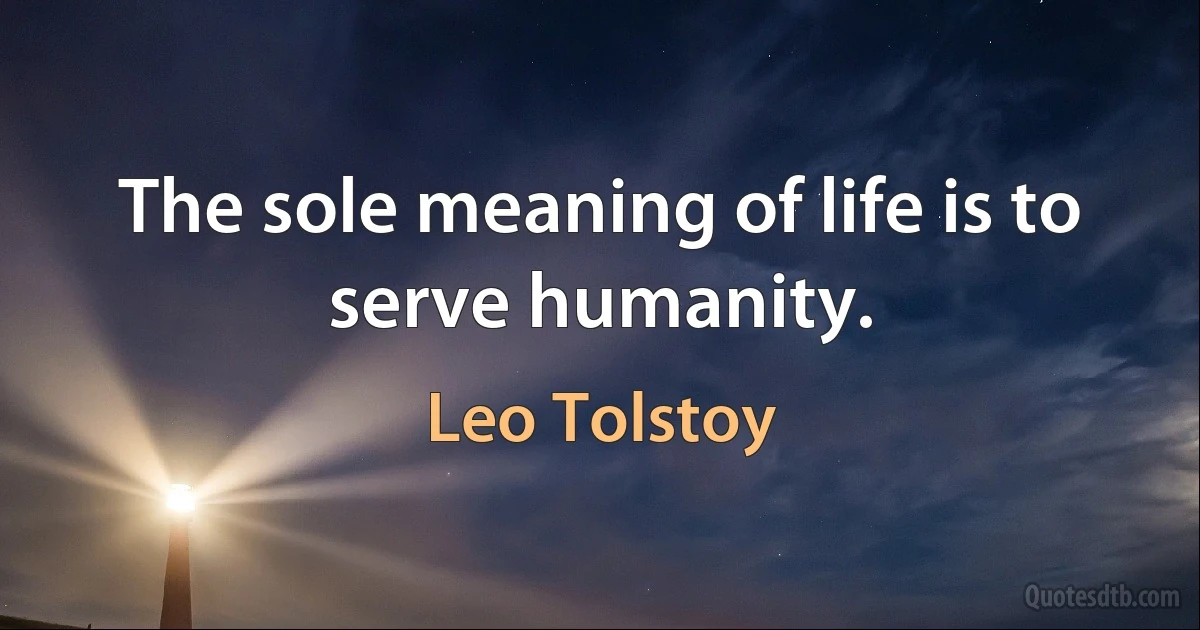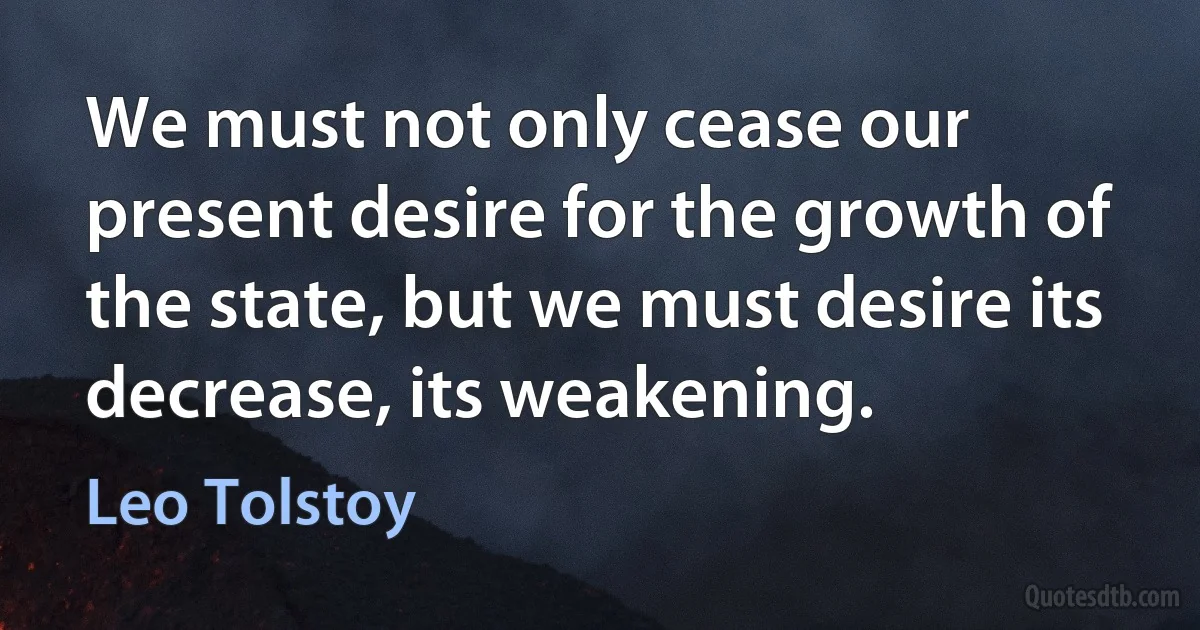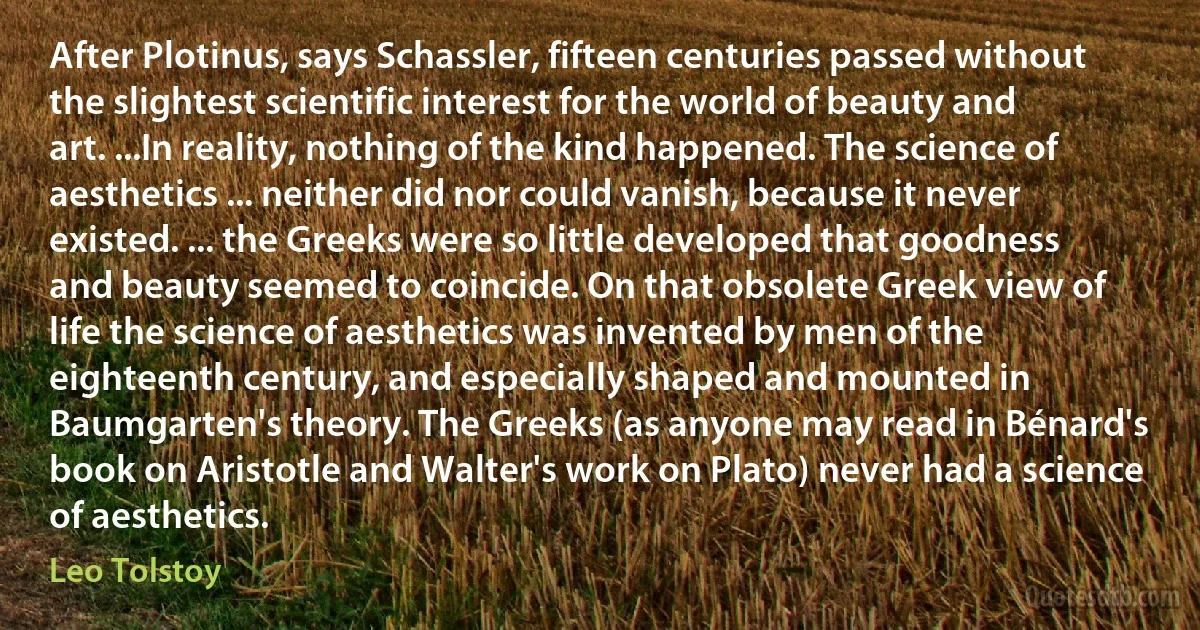Leo Tolstoy quotes - page 15
Leo Tolstoy was a Russian writer, regarded as one of the greatest novelists of all time. His works, including "War and Peace" and "Anna Karenina," have had a profound impact on world literature. He is remembered for his deep philosophical insights and his advocacy of nonviolent resistance. Here are 580 of his quotes:
At the approach of danger there are always two voices that speak with equal force in the heart of man: one very reasonably tells the man to consider the nature of the danger and the means of avoiding it; the other even more reasonable says that it is too painful and harassing to think of the danger, since it is not a man's power to provide for everything and escape from the general march of events; and that it is therefore better to turn aside from the painful subject till it has come, and to think of what is pleasant. In solitude a man generally yields to the first voice; in society to the second.

Leo Tolstoy
Is not the reason of the confidence of the positive, critical, experimental scientists, and of the reverent attitude of the crowd towards their doctrines, still the same? At first it seems strange how the theory of evolution (which, like the redemption in theology, serves the majority as a popular expression of the whole new creed) can justify people in their injustice, and it seems as if the scientific theory dealt only with facts and did nothing but observe facts. But that only seems so. It seemed just the same in the case of theological doctrine: theology, it seemed, was only occupied with dogmas and had no relation to people's lives, and it seemed the same with regard to philosophy, which appeared to be occupied solely with transcendental reasonings. But that only seemed so. It was just the same with the Hegelian doctrine on a large scale and with the particular case of the Malthusian teaching.

Leo Tolstoy
To say that the activity of science and art helps humanity's progress, if by that activity we mean the activity which now calls itself by those names, is as though one said that the clumsy, obstructive splashing of oars in a boat moving down stream assists the boat's progress. It only hinders it... The proof of this is seen in the confession made by men of science that the achievements of the arts and sciences are inaccessible to the labouring masses on account of the unequal distribution of wealth.

Leo Tolstoy
The slaves of our times are not all those factory and workshop hands only who must sell themselves completely into the power of the factory and foundry-owners in order to exist, but nearly all the agricultural laborers are slaves, working, as they do, unceasingly to grow another's corn on another's field, and gathering it into another's barn; or tilling their own fields only in order to pay to bankers the interest on debts they cannot get rid of. And slaves also are all the innumerable footmen, cooks, porters, housemaids, coachmen, bathmen, waiters, etc., who all their life long perform duties most unnatural to a human being, and which they themselves dislike.

Leo Tolstoy
We know very well that we are only allowed to go on eating our dinner, to finish seeing the new play, or to enjoy to the end the ball, the Christmas fete, the promenade, the races or, the hunt, thanks to the policeman's revolver or the soldier's rifle, which will shoot down the famished outcast who has been robbed of his share, and who looks round the corner with covetous eyes at our pleasures, ready to interrupt them instantly, were not policeman and soldier there prepared to run up at our first call for help.

Leo Tolstoy
The difference between him as he was then and as he was now was great ... Then he was a courageous, free man, before whom opened endless possibilities; now he felt himself caught in the tenets of a stupid, idle, aimless, miserable life, from which there was no escape; aye, from which, for the most part, he would not escape. He remembered how he once had prided himself upon his rectitude; how he always made it a rule to tell the truth, and was in reality truthful, and how he was now steeped in falsehood-falsehood which was recognized as truth by all those around him.

Leo Tolstoy
Leo Tolstoy
 Occupation: Russian Novelist
Occupation: Russian Novelist
Born: August 28, 1828
Died: November 7, 1910
Quotes count: 580
Wikipedia: Leo Tolstoy













